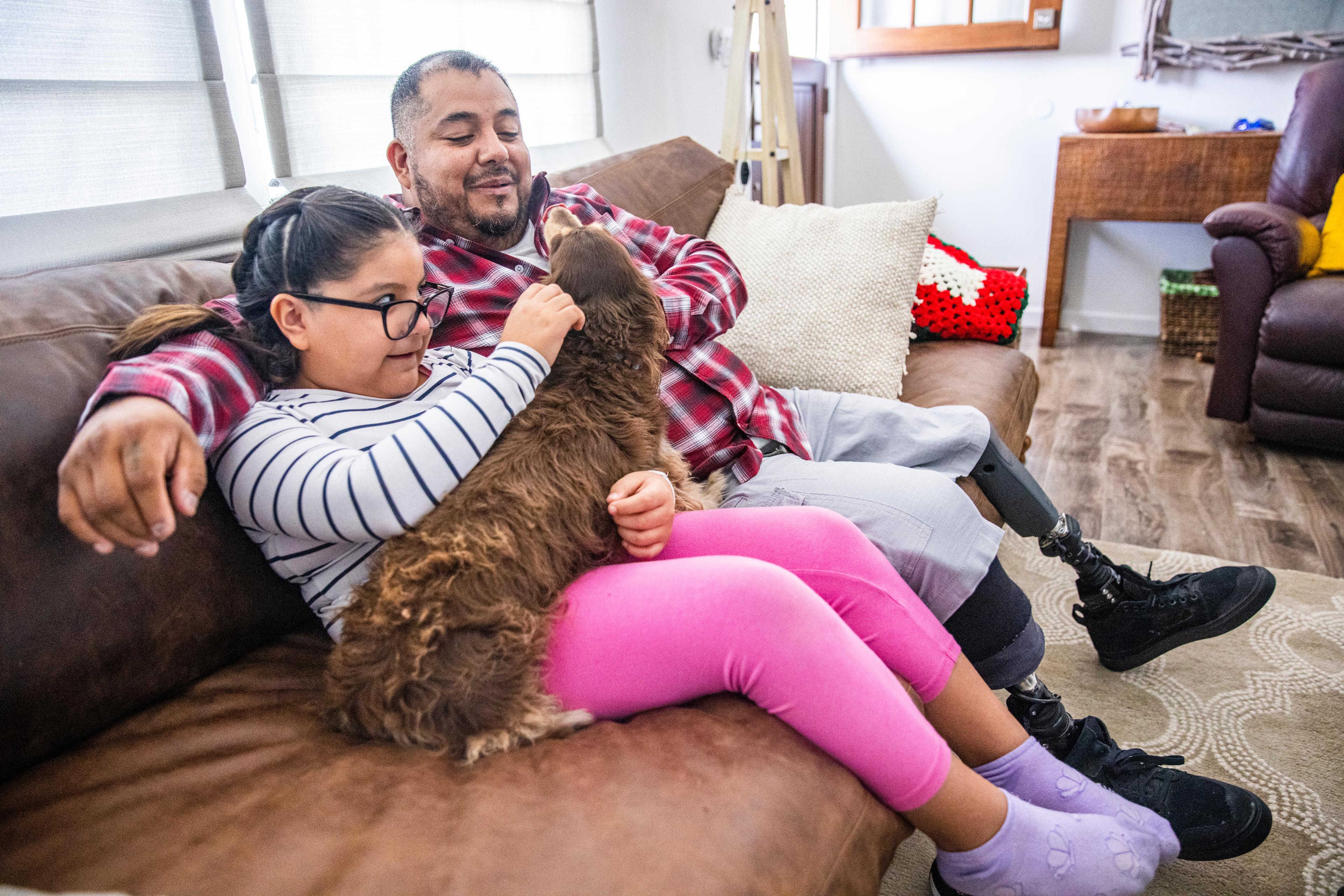Navigating Conversations with Children About Obesity

Shanthi Appelo, MS, RD
| 4 min read

Nearly 20% of children ages two to 19 years old could be characterized as obese – that’s about 14.7 million children. Recent studies have shown the percentage of obese children and teens is not only rising, but obesity is affecting kids earlier in their lives than ever before.
The risk for obesity increases when most of an adolescent’s diet is high-calorie foods like vending machine snacks, fast food and baked goods – as well as fruit juices or other drinks high in sugar. Sedentary activities like watching TV and playing video games can also increase the risk, as these hobbies hinder physical activity.
Social determinants of health also play a role: access to healthy food may be an issue for some families, as supermarkets with fresh produce may be difficult to get to in some communities. Some neighborhoods may be unsafe for children and families to play outside, limiting the types of physical activity they can do. Additionally, stress in a family over any number of issues can affect children, and they may overeat as a coping mechanism. New research shows experiencing racial discrimination may increase a child’s risk of obesity as well.
Being overweight can not only affect a child’s physical and emotional health, but it can have long-lasting effects into adulthood.
Understanding an obesity diagnosis in children
Doctors use the body mass index (BMI) to determine if a person is considered obese. BMI is a number calculated from a person’s height and weight, and the U.S. Centers for Disease Control and Prevention (CDC) believe it is a fairly reliable indicator of body fatness for most people.
For children and teens, BMI is age- and sex-specific and is often referred to as “BMI-for-age." An adolescent is considered obese if their BMI is equal to or greater than the 95th percentile when compared to their peers of the same age and sex.
BMI doesn’t measure body fat directly, but it does offer an inexpensive screening tool. Some researchers have raised questions about the accuracy of the BMI, as it does not account for important health factors including family history, the weight of muscle mass and where excess fat is located on the body. There are variations between genders, races and ages that may affect health as well.
Talking about weight and body image with children
As adults, we can’t expect children to know and understand the nuances of BMI. But we can help them understand their bodies are growing and changing – and that their physical and mental health and wellness are more important than any number. Here are some tips for navigating these topics at home:
- Be body positive: Parents and caregivers should show respect for their own bodies and their children’s bodies, no matter what shape or size they are. When parents run down their own appearance, children learn to attach self-esteem – or a lack of it – to those statements.
- Be holistic: Health is more important than weight or a BMI. For children and teens, health is being able to keep up with their friends, pay attention in school and participate in family activities.
- Show them how food is fuel: Frame eating as fueling their bodies for the activities they enjoy. Explain to teens who are interested in sports how a healthy amount of protein and good fats can help them perform better. If young children have a favorite superhero character, frame healthy eating as a fun way to grow up to be strong.
- Talking about weight: Teach children that people come in all shapes and sizes – and what’s normal for one person may not be normal for someone else. Talk about how commenting on someone else’s body can be harmful and discuss ways to give someone compliments beyond their appearance.
Promoting healthy movement and nutrition at home
- Building healthy habits
- Help children create a healthy relationship with food
- Keep mealtimes regular, and don’t skip breakfast
- Offer a variety of foods, especially when children are young
- Keep snacks limited to specific times of the day to prevent children from eating out of boredom
- Don’t ban indulgences like ice cream or fried foods – just make sure they’re enjoyed in moderation
- Make physical activity a fun part of the daily routine like taking walks together, bicycling, playing active games or dancing
- Visit spaces designed for movement and play – like public parks and playgrounds, baseball fields, swimming pools or basketball courts
- Start early – find activities they love and encourage them to try new things to expand their horizons
Helping children create healthy habits at home and at school can set them up for lifelong success.
Shanthi Appelö is registered dietitian and health and wellness spokesperson at Blue Cross Blue Shield of Michigan. For more health and wellness lifestyle information, visit AHealthierMichigan.org.
Photo credit: Getty Images





